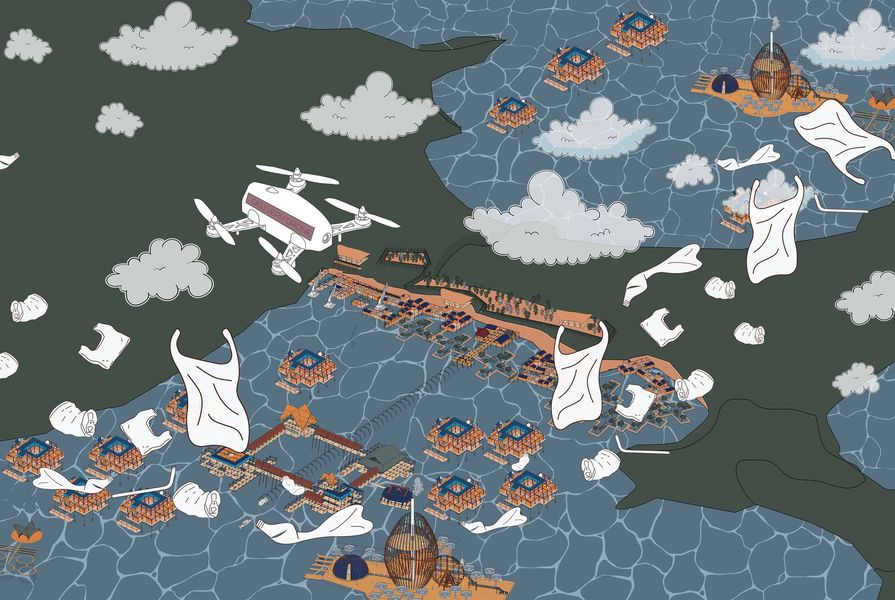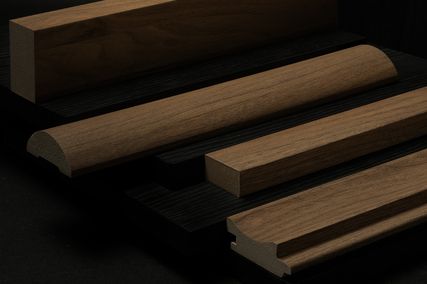Jury citation
This thoughtful and inventive project seeks to address three significant global problems: sea-level rise, plastic pollution and the resettlement of refugees displaced by war. Since the 1970s, Gaya, a little-known Malaysian island off the north-west coast of Borneo, has housed refugees escaping war in the Philippines. Inspired by traditional Filipino floating villages, Neo-Gaya has developed a complex floating ecology of dwellings, biogas plants, workshops and community facilities. As self-sufficient communities, the innovative new settlements have little impact on the land-based tourism of the island.
The proposal is presented as a series of vignettes that cover many aspects of the design, and line drawings that illustrate the stages of development of the kampung villages. The entry is commended for its relevance to real issues, its imagination and completeness, and its underlying sense of creativity and humour.
Entrant’s description
Malaysia’s expected sea-level rise is almost five times the global average, and the nation is ranked eighth in the world for mismanagement of plastic waste. Just off the west coast of East Malaysia, Pulau Gaya (Gaya Island) forms part of the Tuku Abdul Rahman National Park and hosts some luxury tourist resorts. The island is also home to many people of the Bajau tribe, more commonly known as the “Sea Nomads.” The government sees the Bajau as illegal immigrants and does not officially recognize their water villages. Little to no basic infrastructure has been provided for them, resulting in ever-increasing waste pollution. The government intends to develop the island into a tourist hub and to relocate the islanders further from the city.
The speculative project provides an opportunity for the Bajau ethnic group and island residents to reshape their villages and participate in development in a way that will stimulate organic
city growth. It uses traditional typologies as a basis for the new village architecture, adapting it to accommodate a futuristic yet culturally sensitive design. It explores the capacity of the water
body as inhabitable space and the potential of bamboo technology for construction.
Neo-Gaya hopes to address the sociopolitical issue faced by the islanders and to demonstrate how architecture can embrace water. Ultimately, it aims to be an example for coastal cities around the world.


















